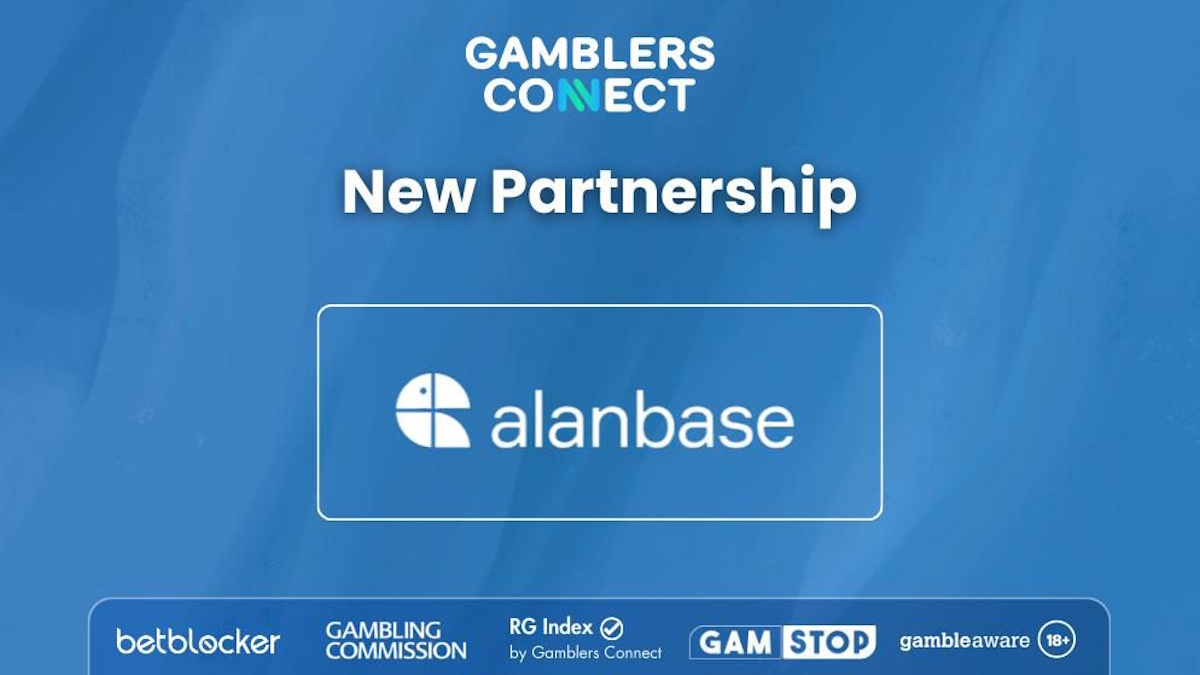Latest News
Here’s a Look at the Top Trends Shaping the Online Gambling Market

The global online gambling market size is projected to reach USD 158.20 billion by 2028, exhibiting a CAGR of 11.4% during the forecast period. This information is given by Fortune Business Insights
List of Key Players Covered in this Market Report:
- Slots Heaven Casino (Slots Heaven Casino)
- Sky Betting & Gaming (Leeds, United Kingdom)
- SPIN Casino (Canada)
- DraftKings Inc. (Massachusetts, United States)
- Betfred (Warrington, United Kingdom)
- BetAmerica (California, United States)
- LeoVegas AB (Stockholm, Sweden)
- Betsson AB (Stockholm, Sweden)
- StarsGroup.com (Ontario, Canada)
- Kindred Group Plc. (Valletta, Malta)
- Mansion Casino (Gibraltar)
- Evolution Gaming AB (British Columbia, Canada)
- Scientific Games Corporation (Nevada, United States)
- Buffalo Partners (New York, United States)
- bet-at-home.com AG (Germany)
- 888 Holdings PLC (Gibraltar)
- Bet365 (Stoke-on-Trent, United Kingdom)
- Flutter Entertainment Plc. (Dublin, Ireland)
- William Hill Plc. (London, United Kingdom)
- Entain plc (GVC Holdings Plc.) (Douglas, Isle of Man)
REPORT SCOPE & SEGMENTATION:
| Report Coverage | Details |
| Forecast Period | 2021 to 2028 |
| Forecast Period 2021 to 2028 CAGR | 11.4% |
| 2028 Value Projection | USD 158.20 Billion |
| Base Year | 2020 |
| Market Size in 2020 | USD 66.72 Billion |
| Historical Data for | 2017 to 2019 |
| No. of Pages | 130 |
| Tables, Charts & Figures | 92 |
| Segments covered | Type; Devices; and Region |
| Growth Drivers | Ease of Online Payment to Drive Online Gambling Market Growth |
| Restrictions of COVID-19 on Land-based Casinos to Boost Demand for Online Gambling | |
| Rapid Adoption of Smartphones to Fuel Demand for Mobile Gambling | |
| Pitfalls & Challenges | Rising Adverse Impacts on Mental Health and Bans on Online Gambling May Impede Market Growth |
Quick Adoption of Online Gambling amid COVID-19 to Boost the Market
The global health and economic crisis triggered by the COVID-19 pandemic forced governments in several countries to impose strict lockdowns and social distancing measures. Companies rapidly adopted remote working models, leading to huge portions of working populations working from home. With most non-essential services and places, including casinos, being closed down, gamers and gamblers have swiftly shifted to virtual platforms, boosting the online gambling market growth in the process. For example, an article published by New York University revealed that digital gambling platforms have gained speedy momentum in Canada after the coronavirus broke out. In Australia, according to a report by Concordia University, Canada, spending on online casinos rose sharply by 67% in April 2020. The coronavirus pandemic has, thus, proved favorable for this market, enabling it to register a healthy CAGR of 11.2% and reach a value of USD 74.17 billion in 2021.
Market Segments
Based on type, the market has been classified into sports betting, casinos, poker, lottery, bingo, and others, with the lottery segment holding a share of 15.1% in the global market and a share of 15.4% in the UK market in 2020.
On the basis of devices, the market segments include desktop, mobile, and others. By region, the market has been divided into North America, Europe, Asia Pacific, the Middle East & Africa, and South America.
Highlights of the Report
The report offers a granular examination of the various factors shaping the growth trajectory of the market, as well as a holistic analysis of the hindrances obstructing the market. Furthermore, a microscopic study of the regional and competitive dynamics influencing the market has also been provided in the report, along with an in-depth assessment of the individual market segments. The insights contained in the report are based on industry-leading research conducted through primary, secondary, and tertiary sources.
Driving Factor
Introduction of Sophisticated Technologies in Virtual Gambling to Fuel the Market
Advanced, intelligent technologies, such as artificial intelligence (AI) and blockchain, are being increasingly employed by online gambling platforms to ensure a secure and safe space for enthusiasts. Heralding this trend are startups that are developing and offering novel gambling platforms powered by smart technologies. For example, Edgeless, which was started in 2018, became the first Ethereum-based virtual casino that uses distributed ledger technology to ensure payouts. Similarly, Tombola is a popular lottery and gambling platform driven by cryptocurrency and other blockchain-enabled tools. Another example is the Canada-based startup, Quarter4, which leverages AI to offer simulations, content, and predictions for sports bettors. The incorporation of new-age solutions in digital gambling is, thus, opening new pathways of development for this market.
Regional Insights
Europe to Headline the Global Market, Forecasts Fortune Business Insights
Europe is expected to dictate the online gambling market share during the forecast period on account of the heavy investments being made by sports enthusiasts across the continent in online sports betting. Moreover, a healthy betting culture in Europe will further bolster the prospects of the market in the region. In 2020, the Europe market size stood at USD 30.92 billion.
The presence of secure connectivity infrastructure and strong gambling regulations will propel North America in the second-leading position in the market in terms of revenue generation. On the other hand, growing investments in online gambling in South America, driven by regulations in Colombia and Argentina, are anticipated to speed up the expansion of the market in this region.
Competitive Landscape
Key Players to Strengthen Businesses through Innovative Collaborations
With online gaming picking up pace amid the COVID-19 pandemic, key players in this market are entering into strategic collaborations with gambling industry giants to deepen their market footprint. These companies are engaging in developing innovative online gambling platforms to attract gamblers and gain momentum in this rapidly evolving market space.
Industry Developments:
- December 2020: BetMGM launched the BetMGM Casino in Pennsylvania, with an aim to bring its online gambling portfolio to players in the state. The platform will offer sophisticated mobile casino games, which will be available on iOS, Android, and desktops.
- February 2020: CBS Sports and William Hill inked a deal under which William Hill will become the exclusive provider of Wagering Data and Sports Book across all CBS Sports platforms. The partnership will integrate sports betting, media, and technology to enhance fan engagement.
Powered by WPeMatico
Latest News
Bagelmania Backroom Comedy night lineup announced for Thursday, Feb. 26

The iconic Jewish delicatessen Siegel’s Bagelmania has announced the comedic line up that will leave guests “laughing their bagels off” at the next Bagelmania Backroom Comedy night on Thursday, Feb. 26.
Hosted monthly by Las Vegas-based and nationally touring comedian couple Noah Gardenswartz and Ester Steinberg, the event Thursday night will welcome Chris Clarke as the headliner along with acclaimed comics Kristeen Von Hagen, Gabe Quire and Lauren Rochelle.
Clarke, known as a high-energy and imaginative comedian, now tours the country with veteran comedian Rob Schneider. He also has amassed more than 40 million views on his popular YouTube channel “Csnacks,” where he tastes food and snacks from the front seat of his car. His hilarious and unique way of describing different flavors led to national commercials for Checkers and Rally’s, a one-hour special on the Cooking Channel titled Baby Got Snack, and an appearance as a food critic judge on Beat Bobby Flay.
Siegel’s Bagelmania will offer a special Backroom Comedy menu of its signature delicatessen cuisine as well as a full bar so guests can enjoy great comedy, dinner, and drinks in a unique, relaxed setting.
The Bagelmania Backroom is open to attendees 18 and older. Doors open for drinks and dinner at 7 p.m. Show time is 8 p.m. Tickets for Bagelmania Backroom are on sale for $20 online at https://siegelsbagelmania.com/backroomcomedy/ and will be sold at the door while supply lasts.
The post Bagelmania Backroom Comedy night lineup announced for Thursday, Feb. 26 appeared first on Americas iGaming & Sports Betting News.
Latest News
ACR Poker OSS XL Returns With $50M GTD

ACR Poker has officially announced the return of its flagship Online Super Series (OSS) XL, running from March 1 to March 23, 2026, with a massive $50 million in guaranteed prize pools.
Following the success of its recent Dual Venom tournaments, which paid out more than $11 million, ACR Poker is once again delivering high-value online tournament action designed for players of all skill levels and bankroll sizes.
Three Main Events With $5 Million Guaranteed
The headline events of OSS XL include three major Main Events launching March 15:
- $2,650 buy-in – $2 million guaranteed
- $1,050 buy-in – $2 million guaranteed
- $215 buy-in – $1 million guaranteed
These marquee tournaments anchor the series, offering players high-stakes competition alongside accessible mid- and low-stakes opportunities.
Phil’s Thrill XXL and Multi-Flight Action
Kicking off the series on March 1 is Phil’s Thrill XXL, featuring a $1.5 million guarantee and a $10,300 buy-in. Players can qualify for as little as $95 through ACR’s Road to the Big One promotion.
The schedule also includes a $630 buy-in Multi-Flight Event with $1.5 million guaranteed, with Day 1 flights beginning March 1 and Day 2 set for March 23.
For bounty hunters, OSS XL offers five Mystery Bounty Multi-Flight tournaments, including:
- Three $500,000 guaranteed events ($109 buy-in)
- A $150,000 guaranteed event ($33 buy-in)
- A $100,000 guaranteed event ($5.50 buy-in)
These tournaments provide dynamic prize opportunities and strong value across all buy-in tiers.
$65,000 Leaderboard Contest
To enhance engagement, ACR Poker’s Leaderboard Contest returns with $65,000 in cash and tournament tickets across three buy-in tiers:
- High Stakes: $15,000 top prize
- Mid Stakes: $7,500 top prize
- Low Stakes: $4,000 top prize
According to ACR Pro Chris Moneymaker, OSS XL stands out for its inclusive structure, substantial guarantees and daily leaderboard incentives that reward consistent participation.
With $50 million guaranteed and a broad mix of Main Events, Mystery Bounties and multi-flight tournaments, OSS XL reinforces ACR Poker’s position as a major force in the global online poker tournament landscape.
The post ACR Poker OSS XL Returns With $50M GTD appeared first on Eastern European Gaming | Global iGaming & Tech Intelligence Hub.
affiliate management system
Alanbase and Gamblers Connect announce new partnership

Gamblers Connect, the award-winning iGaming media and affiliate platform, has announced a new strategic partnership with Alanbase, a cloud-based SaaS “constructor” built to power advanced affiliate programme development.
The collaboration strengthens Gamblers Connect’s B2B Providers section, a curated hub designed to connect iGaming professionals with trusted, high-performance industry solutions. By integrating Alanbase into its ecosystem, Gamblers Connect enhances access to cutting-edge affiliate management technology tailored to competitive iGaming markets.
A Customizable SaaS Solution for iGaming Affiliates
Alanbase differentiates itself through its fully customizable SaaS architecture. Unlike traditional affiliate software, Alanbase allows operators to build dashboards, performance indicators and statistical tables using their own formulas. This “constructor” model ensures the platform adapts to each business workflow — not the other way around.
The cloud-based system also delivers high-speed data refresh capabilities, enabling operators to monitor player activity in near real time. This performance advantage provides deeper analytical insight and supports faster decision-making in fast-moving iGaming environments.
Gjorgje Ristikj, Founder of Gamblers Connect, highlighted that the partnership aligns with the platform’s mission to feature transparent, value-driven B2B providers. By adding Alanbase to its verified partner network, Gamblers Connect reinforces its commitment to showcasing tools that improve affiliate program scalability, operational efficiency and measurable growth.
Expanding the iGaming B2B Ecosystem
The partnership reflects growing demand for flexible affiliate SaaS platforms that prioritize customization, automation and performance tracking. As competition intensifies across global iGaming markets, data-driven affiliate management solutions are becoming a critical component of operator success.
With Alanbase now featured within Gamblers Connect’s B2B Providers hub, industry professionals gain streamlined access to enterprise-grade affiliate infrastructure designed for scalability and precision.
The post Alanbase and Gamblers Connect announce new partnership appeared first on Eastern European Gaming | Global iGaming & Tech Intelligence Hub.
-

 ACMA7 days ago
ACMA7 days agoACMA Blocks More Illegal Online Gambling Websites
-

 CEO of GGBET UA Serhii Mishchenko7 days ago
CEO of GGBET UA Serhii Mishchenko7 days agoGGBET UA kicks off the “Keep it GG” promotional campaign
-

 Aurimas Šilys7 days ago
Aurimas Šilys7 days agoREEVO Partners with Betsson Lithuania
-

 Latest News6 days ago
Latest News6 days agoTRUEiGTECH Unveils Enterprise-Grade Prediction Market Platform for Operators
-

 Canada6 days ago
Canada6 days agoRivalry Corp. Announces Significant Reduction in Operations and Evaluation of Strategic Alternatives
-

 Central Europe7 days ago
Central Europe7 days agoNOVOMATIC Once Again Recognised as an “Austrian Leading Company”
-

 Acquisitions/Merger6 days ago
Acquisitions/Merger6 days agoBoonuspart Acquires Kasiino-boonus to Strengthen its Position in the Estonian iGaming Market
-

 Firecracker Frenzy™ Money Toad™6 days ago
Firecracker Frenzy™ Money Toad™6 days agoAncient fortune explodes to life in Greentube’s Firecracker Frenzy™: Money Toad™



















